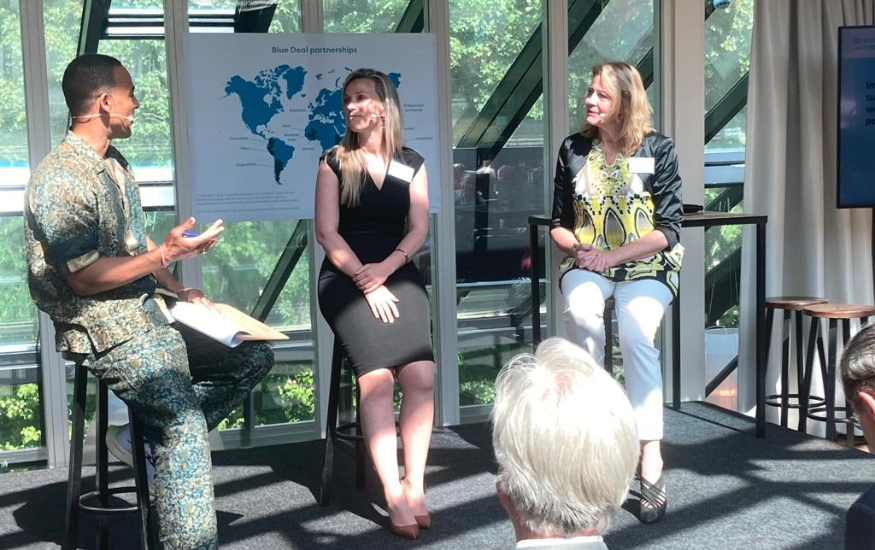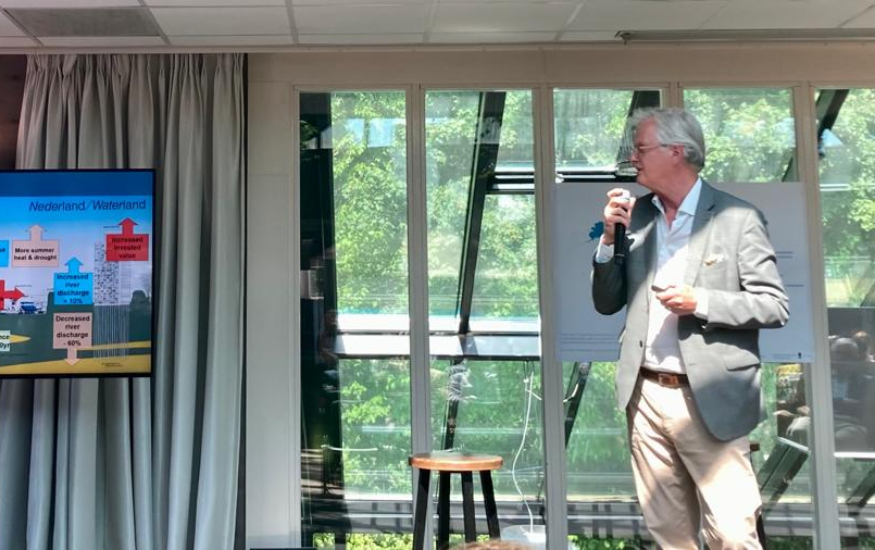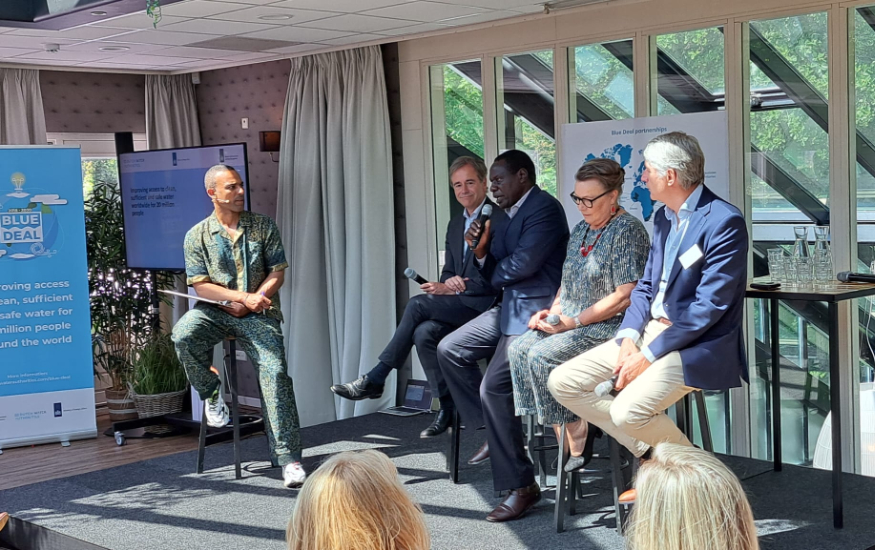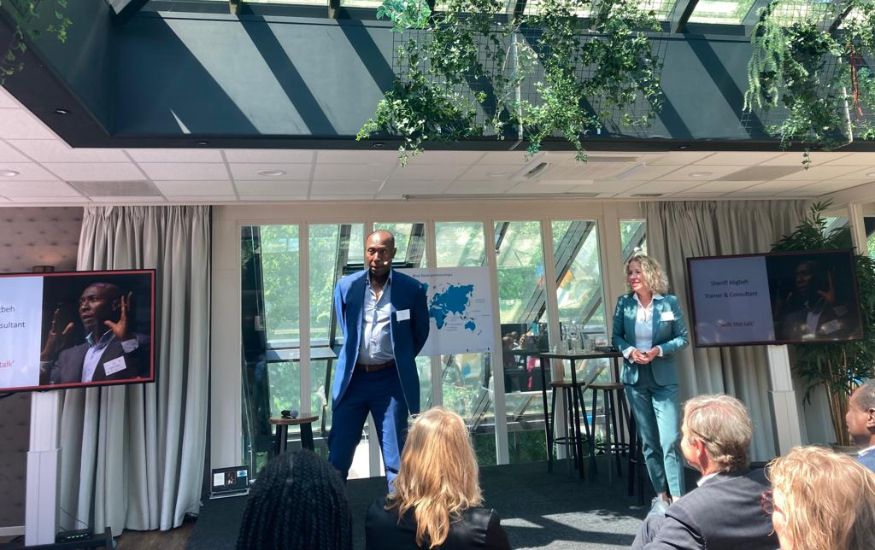The very first Blue Deal Congress started on June 12. International visitors from 16 partnerships were present. “This congress is a wonderful way to learn from each other: learning by meeting each other.” Looking back at Day 1.

In the morning, Luzette Kroon and Emilie Sturm opened the day under the leadership of moderator Ikenna Azuike. Kroon is a board member International Affairs at the Association of Dutch Water Authorities. Sturm is programme manager of the Blue Deal Programme Office. Kroon: “This congress is a wonderful way to learn from each other: learning by meeting each other.” Because that is the purpose of these days together: to meet each other and thus create a basis for exchanging knowledge even more easily in the future. Between the Netherlands and the partner countries, but also between the partner countries themselves.
Drop in the ocean?
The purpose of the Blue Deal is to improve access to clean, sufficient and safe water for 20 million people around the world. “Isn’t that a drop in the ocean?” asks moderator Azuike. “Yes,” replies Kroon, “But we are not alone, so much more is happening in our partner countries. And other countries are also coming up with different programmes. At the UN Water Conference in March this year, we saw that a real movement is emerging. Western countries – largely responsible for climate change – are increasingly taking their responsibility.” The Blue Deal is one of the sources of inspiration in this, as was also apparent at the UN Water Conference.
Peter Glas: The Dutch model is not a blueprint
Keynote speaker of the day was Delta Commissioner Peter Glas. He gave a presentation on water management in the Netherlands. “The Dutch model is not a blueprint, but it can serve as inspiration for our colleagues from abroad.” For the foreign delegations, this Dutch model is certainly something they want to learn from. They ask questions and afterwards several people ask for the PowerPoint presentation, so that they can look at it again later or share it with colleagues.

From draining to retaining
Glass also addresses the challenges facing the Netherlands. For example, that the Netherlands must retain more and more water instead of draining it. “We go from draining to retaining.” And there are all kinds of areas in which the Netherlands can learn from other countries. What can we learn from you in the field of water awareness and participation, Glas asks the audience. A South African guest responds: “In general, water awareness is very high in our area. But we notice that this is not always the case with young people. That is why we started a project: seedlings of hope. For example, together with children we will collect waste in the vicinity of a waterworks. We gradually start to tell more and more about how water management works.”
And what do the international delegations learn from the Blue Deal? For example, John Kinyanjui, from the partnership in Kenya, says during a panel discussion: “We want our government to pay more attention to our water resources. We should not just use the water and then not think about tomorrow. We want our government to realize that we also need to retain and replenish our water resources. We are now working on that with the Blue Deal.”

Intercultural collaboration
The day ended with a session ‘Collaboration across cultures’ by trainers Sheriff Aligbeh and Esther Janssen from Culture Inc. After all, that is what happens in the Blue Deal: working together with all kinds of countries and different cultures. That means adjusting to each other from time to time. Is that bad? Aligbeh does not think so: “A chameleon also adapts its colors to the environment. But does it change its core?”
He explains how cultural differences can sometimes lead to difficult situations. He gives an example of a Dutch man who had to work with people he did not trust at all. They didn’t even look at him! Aligbeh explains: “That is the difference between an egalitarian culture, as in the Netherlands, and a hierarchical culture. These people showed him respect by not looking at him.”
A woman from Burkina Faso gives a tip: “We have made a kind of a cultural map with a comparison between the Dutch and the Burkinese. That makes life a lot easier for us, and for them. Because we now know how best to communicate with each other.”

What’s on the agenda for June 13?
After a successful day on June 12, there is also a lot on the program on June 13. On this day, the participants will split into smaller groups to follow workshops. With the topics: Water pricing, Water safety management, Stakeholder participation, Urban waste water management, Nature-based solutions, and Smart monitoring.
